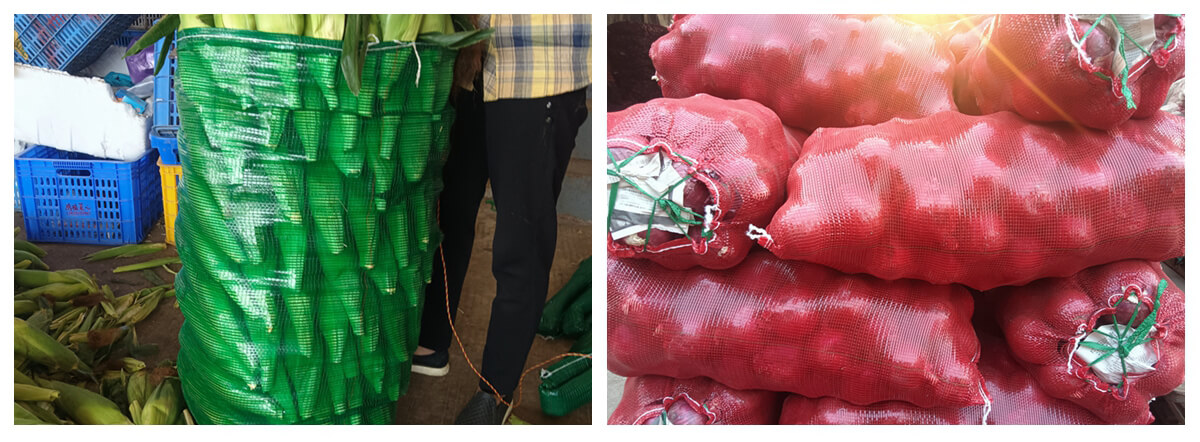Mesh vegetable bags have seen a remarkable evolution, transitioning from a niche eco-friendly option to a mainstream choice for shoppers worldwide. Their popularity is driven by an increasing awareness of environmental problems and a shift towards a sustainable life style. The benefits of using mesh vegetable bags are numerous: they’re reusable, reduce plastic waste, and offer excellent ventilation for produce, extending its freshness.
Types of Materials Used in Mesh Bags
Mesh vegetable bags are crafted from various materials, each offering unique benefits and characteristics.
- Cotton Mesh Bags: Made from natural fibers, these bags are soft, breathable, and ideal for storing a wide range of produce. They are a favorite among environmentally conscious consumers.
- Synthetic Mesh Bags: Constructed from materials like nylon or polyester, these bags are known for their durability and resistance to moisture.
- Biodegradable Mesh Bags: Innovations in materials have led to the development of mesh bags that can decompose naturally, leaving a minimal environmental footprint.

Cotton Mesh Bags: Eco-Friendly and Durable
Cotton mesh bags are celebrated for their eco-friendliness and durability. Their natural fibers allow produce to breathe, reducing the likelihood of mold and spoilage. Cotton mesh is also remarkably sturdy and capable of holding heavy items without tearing. These bags are a sustainable choice, as they are biodegradable and can replace countless single-use plastic bags over their lifespan.
Synthetic Mesh Bags: Versatile and Affordable
Synthetic mesh bags, often made from materials like nylon, are prized for their versatility and affordability. These bags come in various types, such as fine mesh for delicate items or more robust designs for heavier groceries. While they are not biodegradable, their durability means they can be used repeatedly, reducing the need for disposable bags. However, their environmental impact should be considered, as they contribute to microplastic pollution.
Biodegradable Mesh Bags: The Sustainable Choice
Biodegradable mesh bags are at the forefront of sustainable living. Made from materials like cornstarch or other plant-based polymers, they decompose naturally within a relatively short period. Their environmental impact is significantly lower than traditional plastic bags, making them a great choice for eco-conscious consumers. However, their availability and cost can be limiting factors.
Size and Design Variations
Mesh vegetable bags come in various sizes and designs to accommodate shopping needs. Sizes range from small bags suitable for herbs to large ones for bulky items like potatoes. Design-wise, there are drawstring bags for easy closure and zippered options for a more secure seal, catering to personal preferences and specific storage requirements.
Customization and Branding Potential
Mesh bags offer excellent opportunities for customization and branding. Individuals can choose from various colors and designs. At the same time, businesses can brand these bags with logos and slogans, turning them into promotional tools that resonate with eco-conscious customers.
Care and Maintenance
Proper care and maintenance of mesh vegetable bags are essential to ensure longevity. Most can be machine-washed, but following specific cleaning instructions based on the material is important. Tips for maintaining the bags include air-drying them and avoiding harsh chemicals.
Comparing Mesh Bags with Plastic Alternatives
Compared to plastic alternatives, mesh bags stand out in terms of environmental impact and cost-effectiveness. Despite a higher initial cost, they significantly reduce plastic waste and are more economical in the long run.
Where to Buy and What to Look For
Mesh vegetable bags are available at various retail and online stores. Consumers should consider factors like quality, material, size, and price when purchasing. It’s important to balance cost with environmental impact and personal needs.
In a word, mesh vegetable bags offer a practical and sustainable alternative to traditional plastic bags. They come in various materials, sizes, and designs, catering to diverse needs and preferences. By choosing mesh bags, consumers contribute to a healthier environment and encourage a shift towards more eco-friendly shopping practices.





